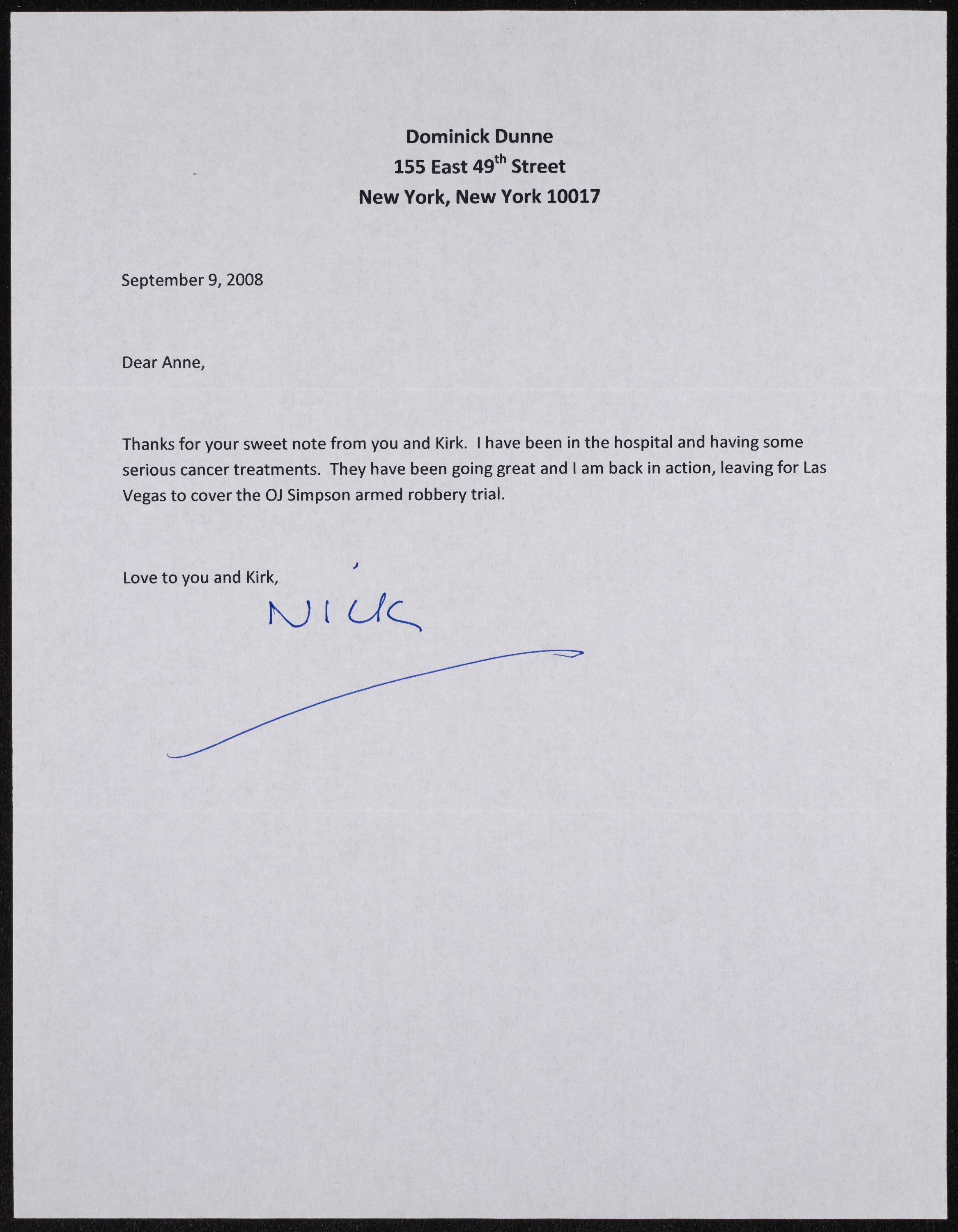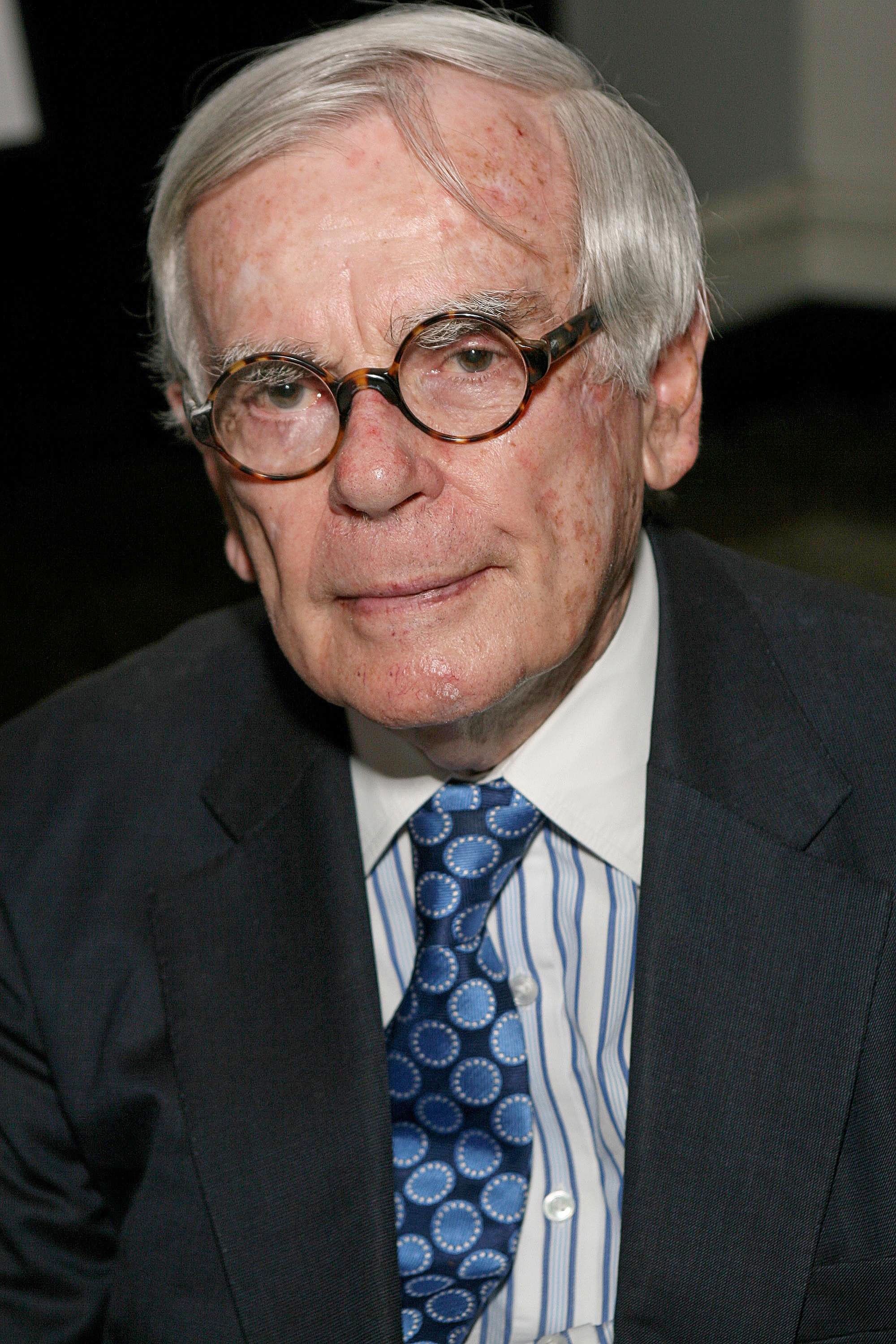Dominick Dunne: The Man Who Turned Tragedy Into Triumph
When you talk about true crime journalism, one name always pops up—Dominick Dunne. The guy wasn’t just a journalist; he was a cultural icon who transformed the way we look at crime stories. Dunne’s work wasn’t just about reporting facts; it was about diving deep into the human side of tragedy. He had this unique ability to make you care about people you’d never met, and that’s what made him unforgettable. So, if you’re here to learn about Dominick Dunne, you’ve come to the right place.
Let’s be real, Dunne’s life wasn’t all glitz and glamour. Sure, he hobnobbed with celebrities and attended high-society events, but his journey was filled with heartbreak and resilience. His daughter’s murder was a pivotal moment that reshaped his career and turned him into the voice of victims everywhere. Dunne didn’t just report on crime; he became a crusader for justice.
What makes Dominick Dunne’s story so compelling? It’s the way he combined his personal pain with his professional passion. His work was more than just journalism—it was a form of healing. Through his writings and TV appearances, Dunne gave a voice to those who couldn’t speak for themselves. And that’s why his legacy continues to inspire so many people today.
- Is Millie Bobby Brown Married The Truth Behind The Rumors
- Robert De Niro Age Unveiling The Iconic Stars Journey Through Time
Who Was Dominick Dunne?
Biography of Dominick Dunne
Dominick Dunne was more than just a journalist. He was a writer, socialite, and advocate for victims’ rights. Born on February 17, 1925, in Hartford, Connecticut, Dunne’s life was a fascinating blend of privilege and struggle. Before he became the face of true crime journalism, Dunne had already carved out a successful career in Hollywood as a producer and screenwriter.
But it was his daughter Dominique Dunne’s murder in 1982 that changed everything. This tragic event became the catalyst for his transition into journalism. Dunne used his platform to shed light on the justice system and the struggles faced by victims’ families. His work became a beacon of hope for those navigating the complexities of the legal world.
Here’s a quick glance at Dominick Dunne’s personal details:
- Where Did Taylor Swift Grow Up The Untold Story Of Her Early Life
- Milania Giudice The Rising Star Shining Brighter Every Day
| Full Name | Dominick Edward Dunne |
|---|---|
| Date of Birth | February 17, 1925 |
| Date of Death | August 26, 2009 |
| Place of Birth | Hartford, Connecticut |
| Profession | Journalist, Writer, Producer |
Early Life and Career
Before Dominick Dunne became a household name in true crime journalism, he was a rising star in Hollywood. He worked as a producer and screenwriter, contributing to films like “The Omen” and “Straw Dogs.” Dunne’s early career was marked by success, but it was also filled with personal challenges.
His journey wasn’t without its ups and downs. Dunne battled with addiction and personal demons, but he always managed to rise above them. This resilience would later become a defining trait in his journalism career. Dunne’s ability to connect with people on a deeply emotional level stemmed from his own experiences with tragedy and triumph.
Key Milestones in Dunne's Career
- Worked as a producer on iconic films like “The Omen.”
- Became a contributing editor for Vanity Fair in the 1980s.
- Wrote several best-selling books, including “True Crime: An American Anthology.”
- Hosted the TV show “Dominick Dunne’s Power, Privilege, and Justice.”
The Turning Point: Dominique Dunne's Murder
Nothing could have prepared Dominick Dunne for the tragedy that would reshape his life. In 1982, his daughter Dominique Dunne was murdered by her estranged boyfriend, John Sweeney. This devastating event not only shattered Dunne’s personal life but also ignited a fire within him to fight for justice.
Dunne channeled his grief into his work, becoming a vocal advocate for victims’ rights. He used his platform to highlight the flaws in the justice system and to give a voice to those who had none. Dunne’s writing during this period was raw, emotional, and deeply impactful.
Impact on His Journalism
Dominique’s murder became the catalyst for Dunne’s transformation into a true crime journalist. He began writing about high-profile cases, such as the Menendez brothers trial and the O.J. Simpson case. Dunne’s unique perspective, shaped by his personal tragedy, made his work stand out in the crowded field of journalism.
His articles weren’t just about the facts; they were about the people behind the headlines. Dunne had a way of making readers empathize with victims and their families, something that set him apart from other journalists in the field.
Writing Style and Legacy
What Made Dunne’s Writing Unique?
Dominick Dunne’s writing was like no one else’s. He had this incredible ability to blend facts with emotion, creating stories that were both informative and deeply moving. Dunne’s work wasn’t just about reporting; it was about storytelling. He had a way of making readers care about the people involved in these cases, whether they were victims, perpetrators, or witnesses.
His writing was often described as “cinematic,” and for good reason. Dunne had a background in Hollywood, and it showed in his prose. He painted vivid pictures with words, bringing readers into the heart of the story. This unique style is one of the reasons why Dunne’s work continues to resonate with readers today.
High-Profile Cases Covered by Dunne
Throughout his career, Dominick Dunne covered some of the most infamous cases in American history. From the Menendez brothers to the O.J. Simpson trial, Dunne’s insights were sought after by readers and viewers alike. His coverage of these cases wasn’t just about the facts; it was about the human stories behind them.
Here are some of the high-profile cases Dunne covered:
- The Menendez Brothers Trial
- The O.J. Simpson Trial
- The Bobbitt Case
- The Martha Moxley Case
Why Dunne’s Coverage Stood Out
Dunne’s coverage of these cases was different from others because he didn’t just report the facts. He delved into the human side of the story, exploring the motivations and emotions of everyone involved. His work was a reminder that behind every headline was a person with a story worth telling.
Dunne’s Advocacy for Victims’ Rights
One of the most significant aspects of Dominick Dunne’s legacy is his advocacy for victims’ rights. After the murder of his daughter, Dunne became a passionate voice for those who had been wronged by the justice system. He used his platform to highlight the flaws in the system and to push for change.
Dunne’s advocacy wasn’t just about writing; it was about action. He worked tirelessly to ensure that victims and their families were given the respect and support they deserved. His efforts helped bring about changes in the way the justice system treated victims and their families.
Impact on the Justice System
Dunne’s work had a lasting impact on the justice system. His advocacy helped bring about changes in laws and policies that better protected victims and their families. Dunne’s legacy lives on in the work of those who continue to fight for justice and fairness in the legal system.
Legacy and Influence
Dominick Dunne’s legacy extends far beyond his journalism career. He was a cultural icon whose work continues to inspire writers, journalists, and advocates today. Dunne’s ability to connect with readers on an emotional level set him apart from others in his field.
His influence can be seen in the work of modern true crime journalists who strive to tell stories with the same depth and empathy that Dunne did. Dunne’s legacy is a reminder that journalism is not just about reporting facts; it’s about telling stories that matter.
How Dunne’s Work Inspires Today
Dunne’s work continues to inspire journalists and writers around the world. His commitment to truth and justice, coupled with his ability to tell compelling stories, has left an indelible mark on the field of journalism. Dunne’s legacy is a testament to the power of storytelling and the importance of giving a voice to those who have none.
Conclusion
Dominick Dunne was more than just a journalist; he was a cultural icon whose work continues to resonate with readers today. His unique ability to blend facts with emotion made his work stand out in the crowded field of journalism. Dunne’s legacy is a reminder that journalism is not just about reporting facts; it’s about telling stories that matter.
So, the next time you dive into a true crime story, remember the man who turned tragedy into triumph. Dominick Dunne’s work continues to inspire and inform, and his legacy lives on in the hearts of those who care about justice and fairness.
What do you think about Dominick Dunne’s impact on journalism? Leave a comment below and let’s keep the conversation going. And if you enjoyed this article, don’t forget to share it with your friends and family. Together, we can keep Dominick Dunne’s legacy alive.
Table of Contents
- Who Was Dominick Dunne?
- Early Life and Career
- The Turning Point: Dominique Dunne's Murder
- Writing Style and Legacy
- High-Profile Cases Covered by Dunne
- Dunne’s Advocacy for Victims’ Rights
- Legacy and Influence
- Conclusion



Detail Author:
- Name : Nigel Bailey V
- Username : ycorwin
- Email : howe.sid@hotmail.com
- Birthdate : 1993-05-26
- Address : 56185 Kautzer Ramp Lake Russelland, TX 90939
- Phone : +1-561-931-4494
- Company : Olson, Sporer and Smith
- Job : Petroleum Pump Operator
- Bio : Vel aut inventore voluptas eaque necessitatibus quisquam. Ea nesciunt voluptate adipisci. Omnis laborum repellat sint nisi quaerat et iste.
Socials
facebook:
- url : https://facebook.com/santina.dickens
- username : santina.dickens
- bio : At quas qui reiciendis et est ut inventore.
- followers : 5096
- following : 634
twitter:
- url : https://twitter.com/sdickens
- username : sdickens
- bio : Assumenda enim maiores vitae exercitationem est. Natus qui maiores vel ipsam saepe. Sint adipisci aspernatur sint. In sunt ut nam ex.
- followers : 3966
- following : 2957